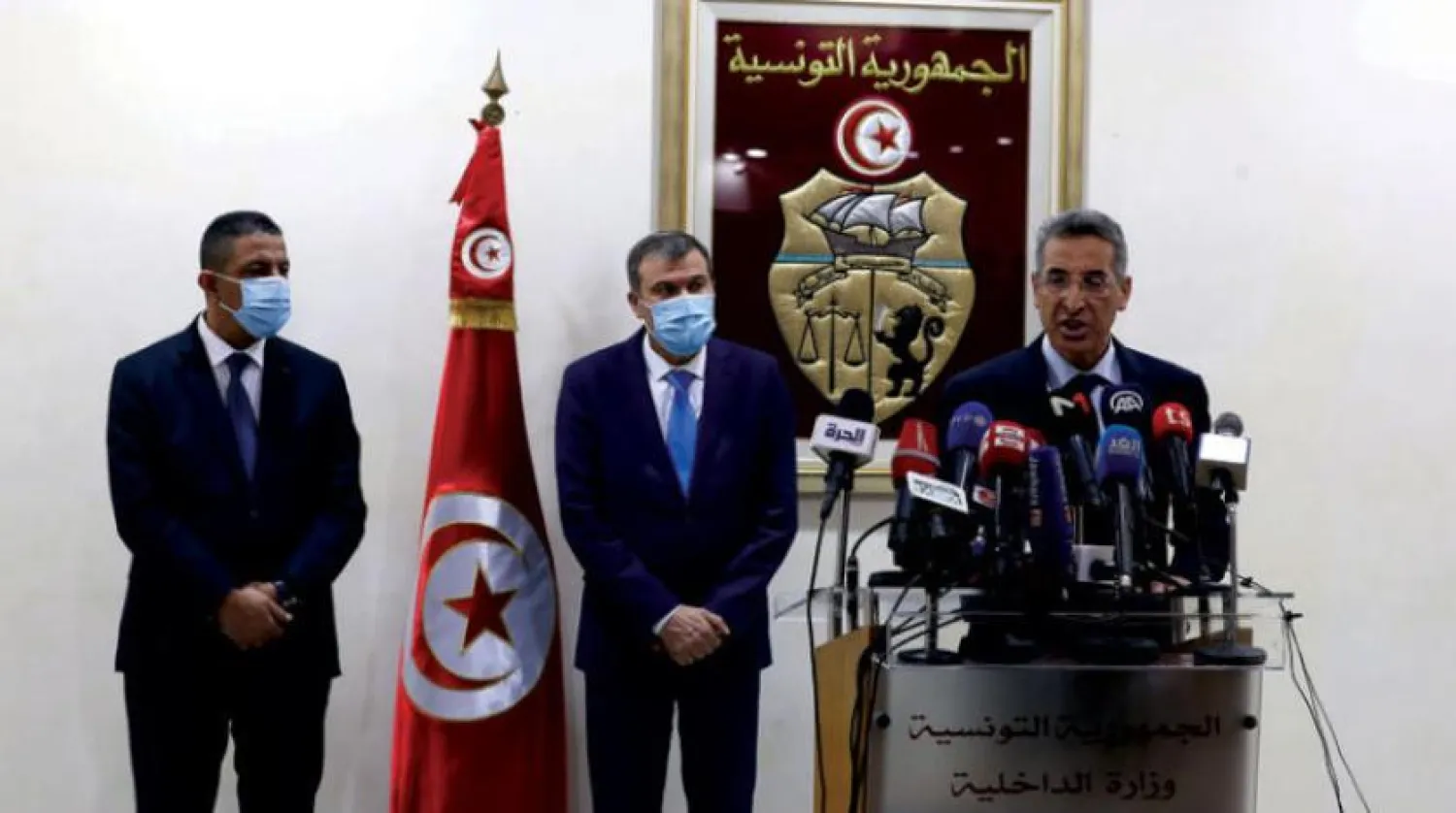Tunisian Interior Minister Taoufik Charfeddine announced that Ennahda Vice President Noureddine Bhiri was placed under house arrest on suspicion of terrorism, sparking wide political, legal, and judicial controversy.
"There were fears of acts of terrorism targeting the country's security, and we had to act," he said on Monday.
Charfeddine explained that Bhiri is "a serious suspect" and has been the subject of forensic investigation for issuing false identities and fake passports.
The minister noted that three persons obtained Tunisian citizenship based on an outdated law, and Tunisian citizenship was granted to a girl born to Syrian parents.
He explained that the authorities could place a citizen under house arrest simply because there are concerns over a threat to the public.
Bhiri was arrested by plainclothes officers, and his whereabouts were initially unknown. However, Fathi Ljray of the anti-torture group INPT later revealed he was transferred to a hospital in the northern town of Bizerte.
Meanwhile, the Liaison Office of the First Instance Court stated that the Public Prosecution was surprised by the failure to enforce legal procedures in the investigations.
Investigations revealed that the Syrian couple was issued two Tunisian identification cards when Bhiri was minister of justice, while the two passports and residencies were issued when Ali Larid was minister of interior.
The same report also included data indicating that the person benefiting from the nationality, passport, and residency had previously been linked to terrorist cases committed outside Tunisian territory.
Head of the Free Destourian Party Abir Moussi warned that the Charfeddine's statements are dangerous and have legal implications. She demanded clarifications over the dangers that Bhiri poses to public security.
Head of the Tunisian League of Human Rights (LTDH), Jamal Muslim called for revealing details of Bhiri's arrest, saying he submitted a detailed report to the presidency on the assaults against Tunisians in security detention centers.









